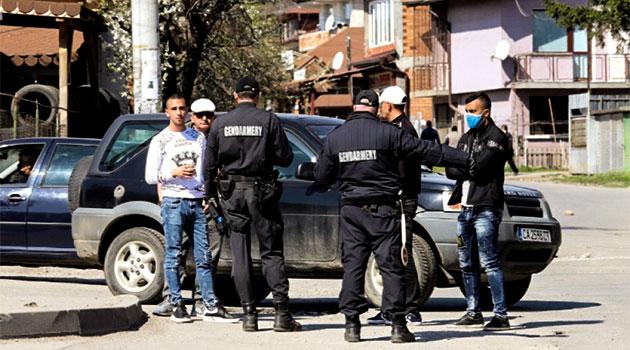EU Fundamental Rights Agency and OSCE say governments must deliver aid to Roma affected by COVID-19 pandemic

All societies continue to feel the impact of the COVID-19 pandemic, but the challenges of the present are especially urgent for Romani people, according to a statement released by the EU Fundamental Rights Agency (FRA) and the Office for Democratic Institutions and Human Rights at the Organization for Security and Co-operation in Europe (OSCE-ODIHR) issued on the occasion of International Romani Day last week. From education to employment, poverty to poor living conditions, Romani people have long been Europe’s most marginalized group.
Surveys conducted by FRA have repeatedly found that Romani people are experiencing the effects of extensive discrimination against them, antigypsyism and social exclusion. “COVID and its related restrictions have summoned a perfect storm of exclusion that has swept through Romani communities across Europe. Even before the pandemic, Romani people were living on the outskirts of society, and now they are facing even greater deprivation and discrimination,” said the director of FRA, Michael O’Flaherty.
“Our governments must put Romani people at the forefront of interest in plans for the return of a ‘new’ normal,” the FRA director said. The many years of disparities between majority societies and Romani people have placed many Roma into an even more vulnerable position during the pandemic, and prejudices against them have further increased.
A monitoring report from ODIHR about the media portrayal of Romani people during 2020 has demonstrated that hate speech against them online sharply grew in frequency, as did disinformation about Romani communities and the role they played during the pandemic. “The time has come to pay more attention to vulnerable communities like the Roma and Sinti who were again the target of attacks and have become the scapegoats blamed for a situation in which they themselves are suffering so much,” said ODIHR director Matteo Mecacci.
“I call on governments to increase their efforts to combat prejudices against Roma and Sinti and to support communities that the pandemic continues to harsly impact,” the ODIHR director added. As for the FRA, its bulletins on COVID-19 are outlining the fact that Romani communities have especially suffered the most as a consequence of the measures adopted in the public health area.
In many countries, Romani children lack Internet access and technology, which prevents them from attending online instruction, and the risk exists that they will fall even more behind. Governments need to aid Romani children with accessing distance education and instructional materials, as the ODIHR recommends in its report on the impact of COVID-19 on human rights.
According to research undertaken by the FRA in six countries, even before the pandemic, many Roma and Travellers were unemployed or were working in precarious conditions. In the year 2019, every other Romani or Traveller youth between 16 and 24 years of age was neither employed nor attending school.
Because governments have instituted movement restrictions in order to stop the spread of the virus, many Romani people who are street vendors or who travel for business were unable to work. In addition, their access to welfare benefits has been informally limited as well.
Successful support for Romani communities requires a dual approach: On the one hand it is necessary to strive to reduce poverty and combat discrimination and racism, while on the other had it is necessary to support strengthening the position of Romani people and making it possible for Romani community members with fully engaging in public life. One such initiative is the annual “Nicolae Gheorghe” Romani Leadership Academy convened by ODIHR.
The academy closely cooperates with Romani people on increasing their “know-how” and skills and maximalizing their influence and impact on policy and decision-making processes. According to the OSCE, governments need to invest more into combating antigypsyism and prejudices, esepcially within the framework of public administrations.
Each participating country in the OSCE should be cooperating, directly and locally, with communities of Roma and Travellers and arranging for Romani individuals and Romani civil society organizations to also be involved in running for elected office. This would provide governments with reliable information about Romani communities and facilitate the development of measures to end or at least ameliorate the negative impact of the pandemic.
“The COVID-19 pandemic has put many Romani people into an even more vulnerable position than they already were. Romani communities, therefore, need immediate, urgent aid in order to quickly and effectively recover from the pandemic,” the OSCE website says.
